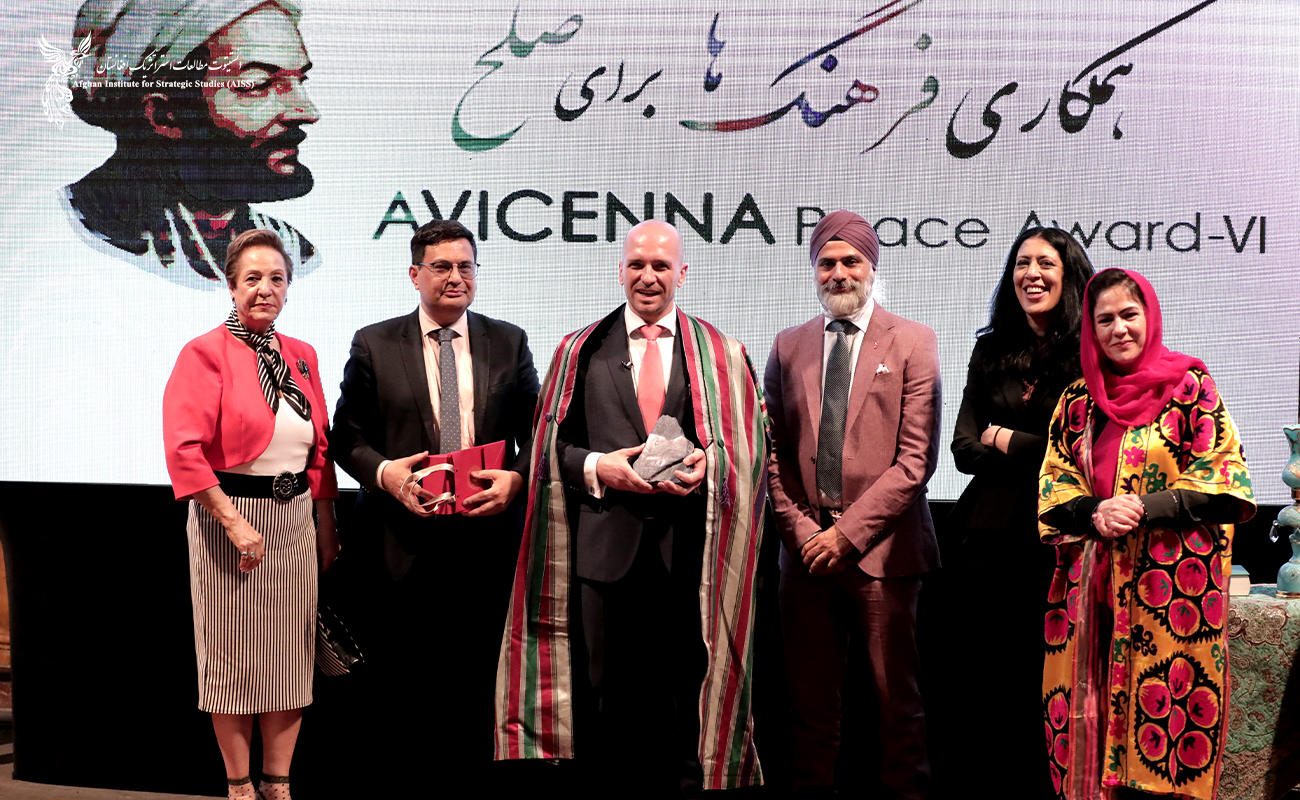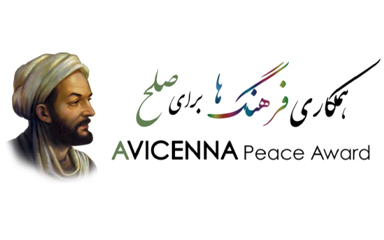Prime Minister Edi Rama's Acceptance Speech
Distinguished guests and dear friends, ladies and gentlemen, it is a profound honor for me to speak before you today. And of course, I would have dearly wished to join you in person at this meaningful gathering, a celebration of intercultural and interreligious dialogue in a world that sadly seems more and more withdrawn into itself. My emotion is all the greater because this occasion is dedicated to the spirit of fraternal friendship between the Afghan and Albanian people, two nations who know from the depth of lived experience the pain of servitude and the true cost of freedom and dignity.
In times such as ours, marked by urgent crisis and deep wounds across the international community, the award you have so generously given me through a great honor could almost feel like a gesture of vanity. And yet I have chosen to be with you in thought today and to accept this distinction in my heart because I believe it carries something far more important, a sign of hope, a very small but yet powerful antidote to the illnesses that threaten the soul of our humanity.
What you are doing here deserves recognition and support. Your efforts to sustain a vibrant global presence of the Afghan soul, to remind the world that a free Afghanistan not only exists but still holds a vision for the future, and to transform the very name of your country into a unifying symbol, one that transcends difference, is no small feat. Through your very presence, through your work, you inspire. You show that it is possible to waken from nightmares if only we have the courage to open our eyes, that evil can be overcome so long as we do not falter in our will. There are no incurable diseases, only the lack of will.
Allow me to borrow the words of Ibn Sina, known to many as Avicenna, who once offered a diagnosis for the gravest illness of any age. It is with deep humility that I now find my name associated with his through the honor of this award. By strengthening your initiatives, of which the Avicenna Prize stands as one of the most remarkable, you act as a kind of medicine, a conscious, concentrated remedy, a force against darkness, against despair, and against resignation to humiliation. Because you have the will to act, in this, you do not merely honor a legacy; you carry it forward.
And why is this so important? Mother Teresa, Nobel Prize laureate and Albania's beloved saint, once said, "Do things for people not because of who they are or what they do in return, but because of who you are." That, in many ways, is the essence of Albania, a country small on the map, yet vast in heart, always open to others, especially when dignity, safety, and life itself hang in the balance.
I accept this award on behalf of the Albanian people, a nation that, through centuries of challenge and change, has quietly sustained a powerful legacy of humanity, hospitality, and moral courage. In honoring these values, the award affirms the universal truth that our shared humanity rises above all borders and differences.
Let me recall a line from A Thousand Splendid Suns, written by the esteemed Afghan-American author and humanitarian Khaled Hosseini: "A society has no chance of success if its women are uneducated." Tragically, the ones who have suffered and continue to suffer the most under the Taliban regime are Afghan women. Since late 2021, Afghanistan has been the only country in the world where girls over the age of 12 are banned from all levels of education. Women are silenced, barred from speaking, singing, showing their faces, let alone singing or even studying to become doctors, all amid the deepening humanitarian crisis in which maternal mortality continues to rise.
We Albanians could not remain bystanders. We could not forget that the price of inaction is measured in human lives, in lost futures, in generations of women erased from public life. This is why we opened our doors to Afghan athletes, activists, and scholars. Their struggle is not their own. It is ours as well. It is a battle for the very soul of humanity. To be a young woman in Afghanistan is to grow up with violence, to learn not to fight back. Our crime? Kicking a ball, playing sports, having fun?
These words from Khalida Popal, a pioneer of Afghan women’s football who was forced into exile for daring to play, capture the deep injustice faced by a generation of girls. In Albania, we answer that injustice with action. The Albanian Football Federation opened its doors to the Afghan women's football team. They trained, played, and lived with dignity, defying the fear and silence that the Taliban sought to impose. Their presence was not symbolic. It was powerful proof that hope can grow again, even after such a devastating event. This, too, is part of our identity.
Just 30 years ago, Albanians were once fleeing fear and oppression from our own red Taliban. We remember the boats that carried us across the Adriatic, the desperate knocks on our neighbors' doors, especially in Italy, where we found compassion and shelter. These are moments we will never forget, and because of that history, we Albanians understand the Afghan people more deeply than most. Our solidarity with them is not theoretical. It is born of lived experience.
That's why, when the skies fell over Afghanistan in 2021 and people scrambled to escape a future stolen overnight, we did not hesitate. We opened our doors, not because we had to, but because we knew it was the right thing to do. We may not have had vast resources, but we had something that showed to be greater: the will to act with honor, to remember our history, and to live up to our values.
Remember once again Avicenna's words: there are no incurable diseases, only the lack of will. As Khaled Hosseini also wrote in The Kite Runner, war doesn't negate decency. It demands it even more than in times of peace. We are people who know that decency matters most when the world is at its worst. Our history calls us to this truth.
During World War II, Albania was the only country in Europe with more Jews after the Holocaust than before it. Muslim and Christian families across our nation risked everything to hide and protect Jewish lives. In 1999, as ethnic cleansing swept through Kosovo, we opened our arms to half a million of our brothers and sisters, not because it was easy, but because it was right.
When the Afghans came to us, we saw their humanity, not their passports, not their faith. In their struggle, we saw a reflection of our own story. In Albania, they found not just shelter, but life. “Zendagi Migzara”, says an old Persian phrase, “life goes on”, and indeed their life continued in Albania. Children returned to school. Albi, the first Afghan baby born on Albanian soil, came into the world. A couple even ran in our annual Tirana Marathon, and the displaced community slowly found the breath of life again. These were not isolated moments of normalcy. They were quiet acts of defiance against despair and powerful proof that dignity can be reclaimed even after displacement.
May these words serve as a solemn reminder that peace is not a passive state, nor simply the absence of war. Rather, it embodies the presence of justice, dignity, courage, and decisive action. To those who seek to build walls in times of fear, we respond with open doors. And to those who claim that nothing can be done in the face of cruelty, we say we remember. We act not for applause, but because it is who we are.
Thank you so much. God bless you and God bless Afghanistan and its very brave people, and especially women and girls.
Download the full text of the speech:


